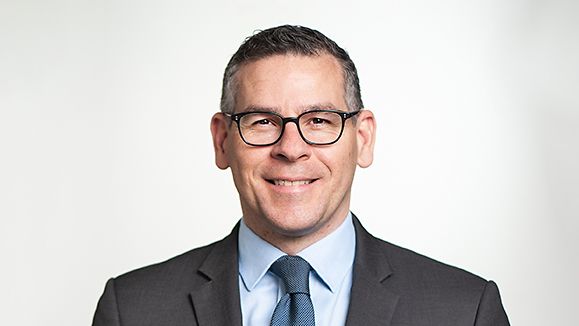Future Mobility
Mobility News | April 2024
BMW is investing EUR 650 million to produce electric vehicles in Munich, while Deutsche Bahn and the federal government are spending more than EUR 1 billion in ICE train maintenance. In other news, German researchers are looking at the future of smart mobility infrastructure while groundbreaking battery research work is being done in Dresden.
Apr 03, 2024
- BMW to invest EUR 650 million to go all electric at Munich plant
- Bosch and Microsoft partner to accelerate autonomous driving
- Deutsche Bahn opens intercity express service facility in Cottbus
- German researchers putting smart infrastructure on the road
- Berlin start-up Vay eyes German market
- Dresden researcher receives EUR 1.5 million starter grant for magnesium battery research
- Tesla plans to double production at Brandenburg site
- EIT InnoEnergy launches battery fund
BMW to invest EUR 650 million to go all electric at Munich plant
Bavarian car manufacturer BMW plans to invest EUR 650 million in converting its Munich plant to electric vehicle production. As of 2027, the German car giant will only produce fully electric vehicles at its main production facility in Bavaria. The conversion will take place during normal operations and encompasses a new vehicle assembly facility including logistics areas as well as a new car body shop. Around 1,000 vehicles roll off the Munich production line daily, including the series 3 model and the all-electric i4 vehicle. The first model of the completely electric new class platform will be produced in Munich from 2026.
Bosch and Microsoft partner to accelerate autonomous driving
Bosch and Microsoft recently announced a collaboration to improve automated driving systems using generative AI. The partnership will see AI deployed to generate training data for automated driving systems, allowing driving contexts – for example, adverse weather conditions - to be quickly changed once an object image has been captured. Bosch will initially concentrate on the development of steering, braking and acceleration systems under the driver’s supervision. The use of “synthetic data” also allows R&D costs to be significantly reduced, thereby making autonomous vehicle development both faster and more cost-effective. To this end, Bosch is investing in new AI test procedures and assistance system start-ups to bring driverless vehicle manufacturing into serial production more quickly.
Deutsche Bahn opens intercity express service facility in Cottbus
German rail company Deutsche Bahn has opened its flagship intercity express maintenance facility in the city of Cottbus. Up to 1,200 jobs will be created at the service plant which represents one of the numerous flagship projects that are part of the federal government’s structural transformation plans as the region moves its industrial focus away from mining. Deutsche Bahn and the federal government have invested more than EUR 1 billion in the new facility in the state of Brandenburg.
German researchers putting smart infrastructure on the road
German researchers are investigating smart infrastructure as an aid to autonomous mobility. In Bavaria, a team at the TU Munich has built a mock-up of a real intersection from Munich city center at an industrial site in Taufkirchen. The recreated site – including inflatable building facades – allows traffic scenarios to be played out using autonomous vehicles, ordinary vehicles, cyclists, and pedestrians. Intelligent traffic infrastructure relays additional data in real time to reduce accident risk. Researchers at the RWTH Aachen’s Institute of Road Engineering are also conducting research into smart infrastructure. Using an AI-based control system, the researchers are measuring traffic data to assess acceleration and braking patterns to identify how different types of road user interact with each other, allowing bicycle and pedestrian traffic for example, to be prioritized or traffic light phases to be extended.
Berlin start-up Vay eyes German market
Berlin-based teledriving start-up Vay is seeking to establish itself in the German market after a successful USA launch. The company provides a long-distance driving service that allows electric vehicles to be taken to the user by a ridesharing driver. The start-up is the first company to deploy driverless vehicles in public roads in Europe and the USA. Vay is also seeking to grow its US presence, having successfully completed a EUR 87 million series B financing round.
Dresden researcher receives EUR 1.5 million starter grant for magnesium battery research
Center for Advancing Electronics Dresden (cfaed) researcher Dr. Minhao Yu has received EUR 1.5 million from the European Research Council to continue his work into next generation batteries. The cfaed project lead and TU Dresden chemistry faculty member is developing a sustainable alternative to lithium-ion batteries as part of the “BattSkin” project which uses precise polymer chemistry to govern the interfacial ion dynamics. Magnesium batteries are widely considered as being a suitable carrier candidate for next generation batteries thanks to their low cost, high efficiency, sustainability, and safety. Although still very much in fundamental research stage, the BattSkin project uses molecule-specific customizable 2D crystalline polymers as artificial electrode “skins” to regulate interfacial ion transportation and make magnesium batteries ready for application.
Tesla plans to double production at Brandenburg site
US electric car manufacturer Tesla wants to increase the size of its German factory in Brandenburg in order to double production capacity. According to the company, more than 250,000 vehicles are currently produced each year. Optimization to the existing plant is initially planned, with new buildings for car and battery production to follow subject to planning permission approval being granted.
EIT InnoEnergy launches battery fund
EIT InnoEnergy, in partnership with the French Demeter Investment Managers, has launched a comprehensive fund to promote the production of battery raw materials in Europe. The "EBA Strategic Battery Materials Fund" has a volume of EUR 500 million amid plans to build a strong and competitive European battery industry that is not dependent on foreign import of key battery raw materials. Demeter will act as the manager of the fund and identify suitable projects together with EIT InnoEnergy. The fund will be supported by Société Générale in raising capital. At least 70 percent of the fund's investments will go to projects within the EU and neighboring countries – covering the entire process from extraction to recycling.

